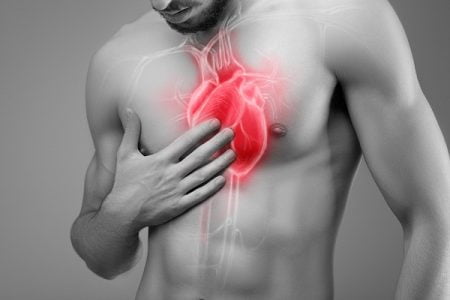Maintaining Heart Health: Nine Useful Tips for Seniors
- Updated on: Feb 7, 2025
- 4 min Read
- Published on Feb 7, 2024

As we age, our heart’s efficiency can gradually decline, influenced by both the natural aging process and our lifestyle choices. Without proper care, this decline can lead to increased risks of heart disease, which remains one of the leading causes of morbidity and mortality in the USA. Hence, recognizing and modifying lifestyle habits are pivotal steps toward mitigating these risks. Implementing practical measures to maintain heart health is not just about prolonging life; it’s about enhancing life’s quality, enabling seniors to enjoy their later years with vitality and fewer health concerns.
1. Understand Your Heart Health Risk Factors
Awareness of personal risk factors for heart disease is the cornerstone of prevention. These factors include both non-modifiable risks, such as age, family history, and genetics, and modifiable risks, such as hypertension, high cholesterol, obesity, diabetes, and lifestyle habits, including smoking and physical inactivity. By understanding these risks, seniors can prioritize which areas of their health need immediate attention and which preventative measures can be most beneficial. Regular health screenings are vital for early detection and management of these risks.
2. Seek Professional Help When Necessary
Promptly addressing any concerning symptoms or seeking guidance on heart health management is crucial. Symptoms such as chest pain, shortness of breath, excessive fatigue, or irregular heartbeat should not be ignored. A virtual health clinic is a convenient option during such moments of doubt, offering access to healthcare professionals from the comfort of home. These platforms can be particularly beneficial for seniors with mobility issues or those living in remote areas. Through virtual consultations, individuals can receive personalized advice, medication management, and continuous monitoring of their condition without the need to travel.
3. Maintain a Heart-Healthy Diet
Diet plays a significant role in heart health. A heart-healthy diet includes a variety of fruits, vegetables, whole grains, and lean proteins, and it emphasizes the importance of limiting saturated fats, trans fats, cholesterol, sodium, and added sugars. Such a diet helps manage blood pressure and cholesterol levels, two critical factors in heart disease prevention. Antioxidant-rich foods and those high in omega-3 fatty acids, such as salmon and flaxseeds, can also contribute to heart health by reducing inflammation and improving arterial function.
4. Stay Physically Active
Physical activity is essential for everyone, especially for seniors who might get used to sitting around all day after retiring. Regular exercise helps maintain a healthy weight, lowers blood pressure, improves cholesterol levels, and enhances overall cardiovascular fitness. Activities such as walking, swimming, cycling, and yoga are excellent options for seniors, offering both aerobic and muscle-strengthening benefits. It’s important to choose activities that are enjoyable and sustainable, ensuring regular participation.
5. Monitor Your Blood Pressure Regularly
High blood pressure, or hypertension, is often dubbed the “silent killer” due to its lack of symptoms until significant damage has occurred. Regular blood pressure monitoring can help detect hypertension early, allowing for timely interventions to prevent complications such as heart attack, stroke, and heart failure. Home blood pressure monitors are widely available and easy to use, providing a convenient way for seniors to keep track of their blood pressure between healthcare visits.
6. Manage Your Cholesterol Levels
Cholesterol plays a significant role in heart health. High levels of LDL (low-density lipoprotein) cholesterol can lead to the buildup of plaque in the arteries, increasing the risk of heart disease and stroke. Conversely, HDL (high-density lipoprotein) cholesterol, or “good” cholesterol, helps remove other forms of cholesterol from your bloodstream. Regular screening to monitor cholesterol levels is essential, and seniors should strive to maintain optimal levels through diet, exercise, and, when necessary, medication prescribed by a healthcare provider.
7. Control Your Blood Sugar
Diabetes or elevated blood sugar levels significantly increase the risk of developing heart disease. For seniors, managing blood sugar levels is critical, as the body’s ability to process sugar can be compromised with age. Regular monitoring, combined with a balanced diet low in refined sugars and high in fiber, can help control blood sugar levels. Physical activity also plays a vital role in managing diabetes, as it can improve insulin sensitivity. It’s important for seniors with diabetes to work closely with their healthcare provider to monitor their condition and adjust their treatment plan as necessary.
8. Maintain a Healthy Weight
Excess weight, particularly around the midsection, can increase the risk of heart disease, as it is associated with higher levels of bad cholesterol, higher blood pressure, and an increased risk of diabetes. For seniors, maintaining a healthy weight through a balanced diet and regular physical activity is crucial. Simple lifestyle changes, such as eating nutrient-dense foods, controlling portion sizes, and incorporating moderate exercise into daily routines, can make a significant difference in achieving and maintaining a healthy weight.
9. Quit Smoking
Smoking is one of the most significant risk factors for developing heart disease. The chemicals found in tobacco can damage the heart and blood vessels, leading to the narrowing of the arteries (atherosclerosis), which can ultimately cause a heart attack. Quitting smoking can dramatically reduce the risk of heart disease, regardless of how long a person has been smoking. There are many resources available to help seniors quit smoking, including nicotine replacement therapies, medications, and support groups, which can increase the chances of success.
Conclusion
Heart health is an integral part of aging gracefully and healthily. The lifestyle changes recommended in this article, coupled with regular medical check-ups and personalized advice from healthcare providers, can lead to significant improvements in cardiovascular health. By adopting these measures, seniors can not only reduce their risk of heart disease but also enhance their quality of life, ensuring they enjoy their senior years with vitality and good health.











